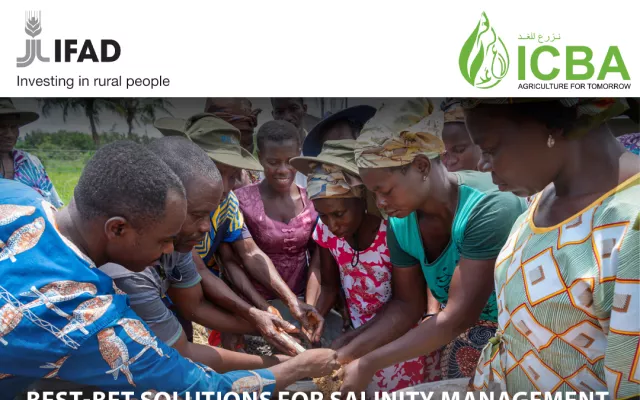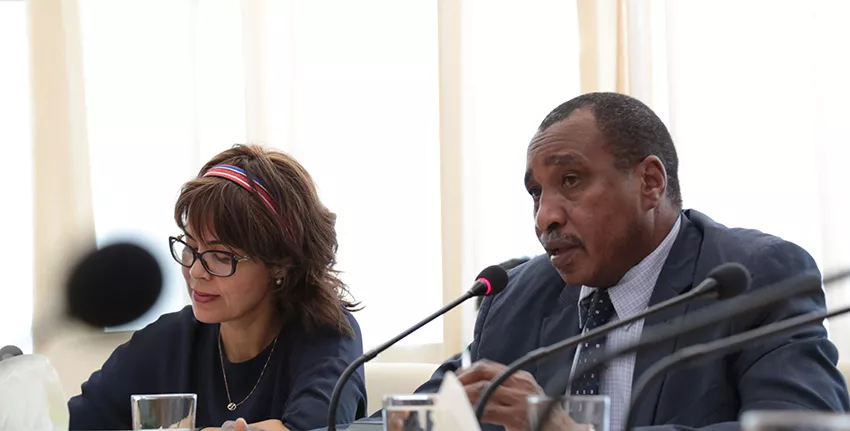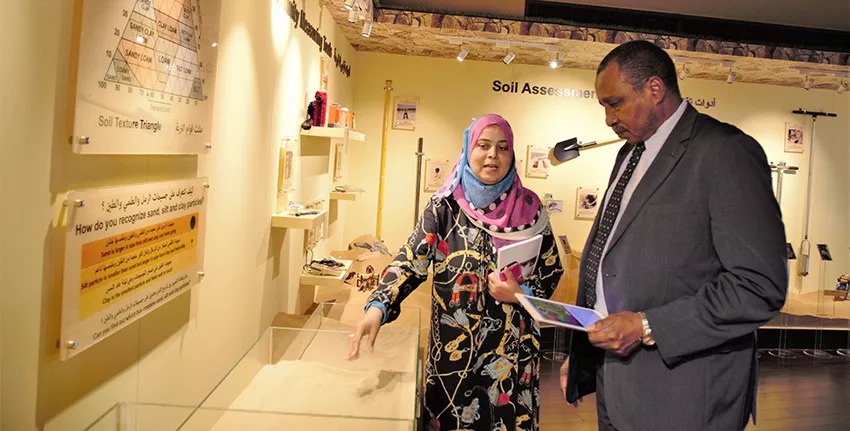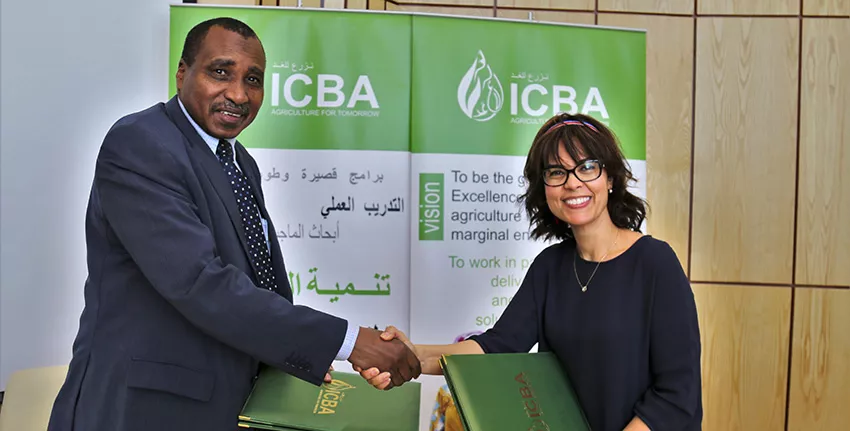ICBA, AOAD partner to boost food security in Arab region
16 October 2017
The International Center for Biosaline Agriculture (ICBA) and the Arab Organization for Agricultural Development (AOAD) agreed today to step up collaboration on agricultural climate resilience and food security in the Arab region.
ICBA and AOAD formalized their partnership through a memorandum of understanding signed as part of a visit to ICBA by an AOAD delegation led by H.E. Director General of AOAD, Prof. Ibrahim Adam Ahmed El-Dukheri.
The document provides a solid framework for joint efforts to address major problems, including water scarcity and salinity, facing the agricultural sectors of Arab countries.
During a meeting with the AOAD delegation, Dr. Ismahane Elouafi, Director General of ICBA, said: “We are honored to welcome Prof. Ibrahim Adam Ahmed El-Dukheri and his team to our center today. It is a great opportunity for us to look at how we can work together to better serve the needs of our stakeholders in the Arab region.”
For his part, Prof. Ibrahim Adam Ahmed El-Dukheri said: “I am delighted to be here with my team and meet ICBA’s team to deliberate over different issues and brief each other on the mandates and operational frameworks of our institutions.”
Under the agreement, ICBA and AOAD will cooperate on projects related to, among other things, climate change adaptation and mitigation, desertification and sustainable management of natural resources.
Dr. Ismahane Elouafi said: “We are pleased to form a strategic partnership with AOAD. We see the signing of the memorandum as an important step to intensify collaborative work to improve food security and nutrition, combat desertification and land degradation, and help smallholder farmers to better adapt to the effects of climate change in Arab countries. Through our partnership with AOAD, we hope to increase the reach and impact of our research-for-development programs in the Arab region.”
As AOAD is one of the specialized Arab organizations functioning under the umbrella of the Arab League, ICBA aims to work with the organization to support its member states in developing land cover mapping and crop yield predictions, and provide technical assistance to the countries in which both organizations operate. To date ICBA has implemented research-for-development activities in, among others, Bahrain, Egypt, Iraq, Jordan, Lebanon, Mauritania, Morocco, Oman, Saudi Arabia, Syria, Tunisia, the United Arab Emirates and Yemen.
Prof. Ibrahim Adam Ahmed El-Dukheri said: “We have come together today to start a new partnership. This collaboration is expected to bring together two organizations that work on the same issues such as climate change, salinity and desertification, as well as other issues related to agriculture. We have listed the areas of collaboration which have been put into a formal agreement with a number of entries that will guide our organizations in working closely in the interests of our ultimate clients, which for us and ICBA are 22 Arab countries.”
As part of the agreement, ICBA and AOAD also seek to enhance online knowledge platforms related to agriculture and build the capacities of national stakeholders in sustainable agricultural development, food security, water harvesting and combating desertification.
As an applied agricultural research center, ICBA has been working to address current and future risks and problems in marginal areas. Over the past two decades the center has been identifying, testing and piloting resource-efficient, climate-smart crops and technologies in salt-affected, water-scarce and drought-vulnerable regions around the world. As a result, ICBA has accumulated extensive applied experience and developed tailor-made solutions to the problems of salinity, water scarcity and drought. The center is uniquely positioned to introduce much-needed climate-smart crops and technologies in different parts of the world to alleviate projected food and water crises.
The center stores one of the world’s largest collections of germplasm exclusively dedicated to heat- and salt-tolerant plant species. Its gene bank has over 13,000 accessions of some 240 plant species from more than 150 countries and territories of the world. The gene bank also preserves around 250 seed samples of 70 wild plant species from the UAE, the center’s host country.
ICBA targets some of the poorest communities in regions where agriculture is the main livelihood but is failing due to salinity, water scarcity and drought.












